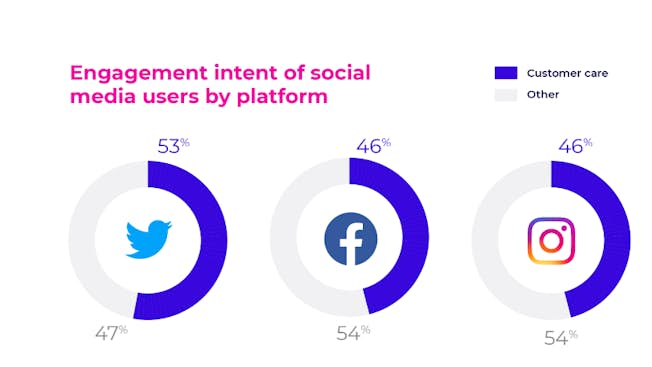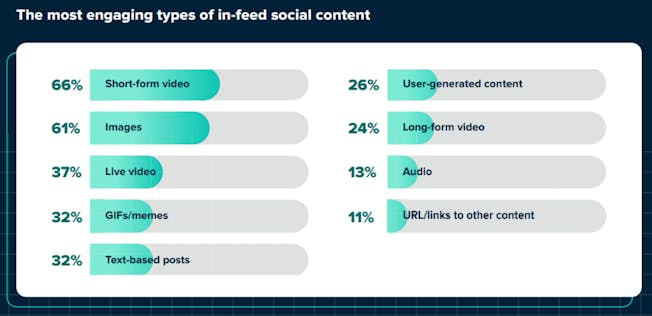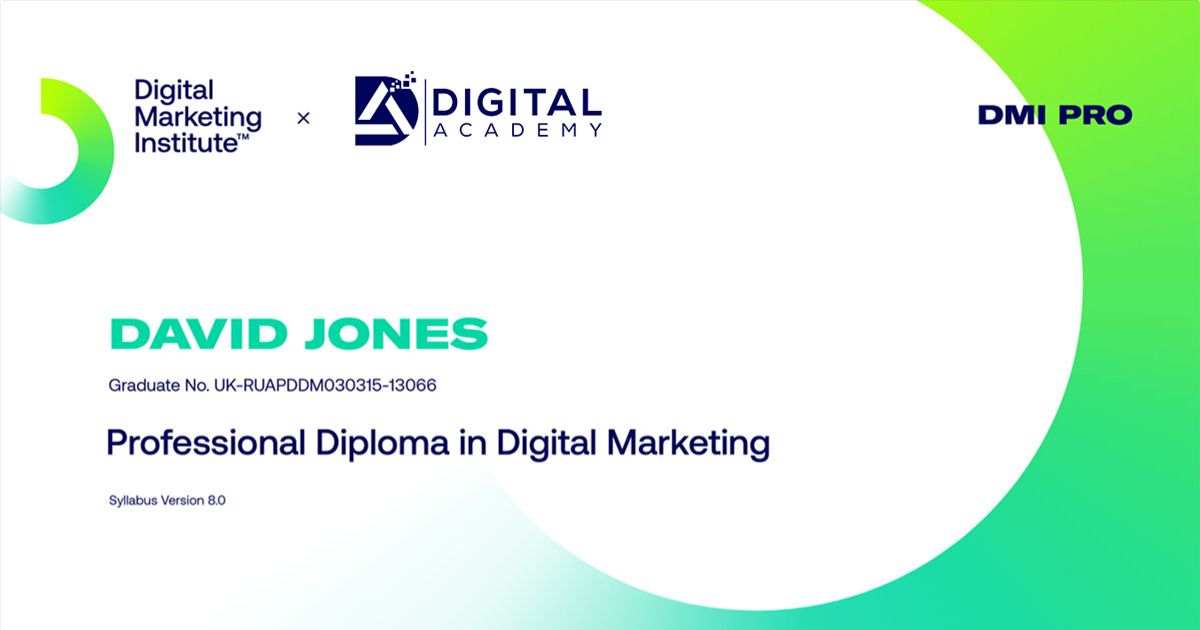Trở lại trang Blog


When thinking about combining SEO and social media, ask yourself the following questions:



10 SKILLS YOU NEED TO BECOME A GREAT SOCIAL MEDIA MANAGER
Like any senior marketing role, becoming a good Social Media Manager requires you to have a wide range of skills to create engaging social content that converts followers into loyal customers.
Research by Zippia found that social media manager jobs are expected to grow by 10% up to 2028. This could equal up to 33,700 new jobs for social media managers over the next decade.
The role and skills of a Social Media Manager have evolved over the years to become more complex. Skills required in the role now include social media outreach, social customer service, platform expertise, and influencer marketing.
The part played by AI in digital marketing is also having an impact on social media networks, and is something to watch closely as platforms evolve.
If you're an aspiring Social Media Manager but aren’t sure where to start, this article will help you identify the skills needed to carve out a successful career in social media management.
What is a Social Media Manager?
A Social Media Manager is trusted with monitoring, executing, filtering, and measuring the social media presence of a product, brand, corporation, or even individual.
This role is often seen as the ‘voice of the company’ and may also be referred to as ‘Community Manager’ (although this title has become slightly outdated) or ‘Digital and Social Media Manager’.
What Does a Social Media Manager Do?
Social media managers create and maintain brand promotions, company information, and marketing campaigns for their company across several social media networks. They also know the best social media metrics to focus on and use tools and respond to questions and comments according to the company’s voice and guidelines. Social media managers work daily to produce new content, constantly innovating to push new ideas and formats and measuring how well those ideas perform.
They may report to a social media director (in larger organizations) or the head of content or brand and collaborate with other creative groups such as marketing and public relations. The role also requires collaboration with other departments such as the sales department to drive lead generation campaigns that convert into revenue.
A key part of the role is to keep up with new digital marketing trends along with company and industry news.
An in-demand role, Social Media Manager positions typically require a bachelor’s degree in marketing, public relations, or similar. According to Glassdoor, Social Media Managers earn an average salary of over $59,000 in the U.S.
What are the tasks of a Social Media Manager?
The role is fast-paced and varied involving many tasks in the space of a day! Some of the tasks a Social Media Manager might do are:
• Create content for multiple platforms - The content you create for Facebook won’t necessarily work on TikTok or Threads. Look at what content will work for each platform based on trending content and look at what your competitors are posting e.g. video, gif, infographic, blog, etc.
• Monitor social analytics - Check what campaigns are working (or not working) across channels so your time and money are spent on the right channels and aimed at the right people.
• Devise a social network strategy - You may need to create a campaign from scratch to promote a sale or new product.
• Measure and prove ROI - Set measurable goals across relevant channels and create a report to track performance and measure social media ROI. Use a social media campaign calculator to meet your objectives at the right cost.
• Schedule social posts - Each platform has an ‘ideal’ time to post content (Instagram users seem to be busiest on Wednesday mornings!). Scheduling ahead of time helps reduce workloads and ensure content is posted when you’re asleep, but your audience isn’t.
• Find relevant curated content - Some of your social posts should reflect world events or developments that matter to your audience. Do some research and share third-party content that will resonate.
• Engage with your audience - The point of your social media is to build engagement. So, respond to any comments and deal with customer queries. In other words, use your social media channels as a customer service channel.
• Review and populate your content calendar - In such a fast-paced world, you need to plan your content. Populate your social media calendar for days or even weeks ahead to stay on top of things.
These are just a few examples of tasks that you may need to do. But remember, each day can be different, so keeping on top of your content calendar and social campaigns is crucial to online success.
9 Skills You Need to be a Great Social Media Manager
Now that you know what the role involves, let's look at what skills a Social Media Manager should have.
1. Writing
Social media managers do a lot of writing, sometimes more than a dozen posts each day. Plus, each social network requires a slightly different style of copywriting.
For example, LinkedIn requires a more professional tone, while Facebook can be more light and fun. SEO copywriting knowledge is also very helpful to know about. (More on this later!)
You must be able to create messages that are quickly understood by your audience and promote a positive sentiment. Through writing, a social media manager should enhance their brand and become ‘the voice’ of the company.
Some important types of writing include:
• Short and snappy headline writing
• Engaging introductions
• Video and image captions
• Structured text for easy reading (because consumers will skim and scan subtitles, bullet points and numbering are key!)
2. Research
Social media managers must stay up-to-date with the ever-changing world of social and digital media.
This includes new measurement/analytics tools, industry and world trends, and tracking what your competitors are doing, even on a daily basis.
Here’s a great video with Emeric Ernoult, Founder of Agora Pulse that came on the DMI podcast to talk through social media marketing and looks at the different networks you can use.
Great social media managers set up Google Alerts on popular topics and use tools like Feedly, Ahrefs and BuzzSumo to keep up with trending content.
The X Trends sidebar and the TikTok ‘Discover’ tab are useful, while hashtag research can also help identify topics to tap into.
3. Customer Service
According to research by Khoros, about half of consumers who engage with brands on social media are reaching out about customer care concerns.
And engagement differs on platforms as shown in this graphic (although for many users, social media offers the easiest and quickest way to get a response from a brand, so Social Media Managers should be vigilant across channels).

Customers often look to social media for help with answering questions or to complain (or rave) about their experience, especially with platforms like WhatsApp and Facebook Messenger available.
So, if nobody is there to respond (even on nights and weekends), their impressions of that brand could sour.
Here are some stats collated by Hootsuite on the importance of customer service and social media. Highlights include:
• 49% of organizations see social customer service as the responsibility of the marketing team
• Over half of respondents in a Facebook IQ survey reported that they’re more likely to buy from a company that offers customer service via chat
• Messaging channels reduce the cost of customer interaction by 60%
• 50% of consumers say that a timely response to their customer-service questions influences their decision to make a purchase
• 40% of consumers expect a response within an hour on social media while 79% expect to hear within 24 hours
4. SEO Knowledge
Search Engine Optimization, more commonly referred to as SEO in marketing circles has become an integral part of content marketing and social media.
In fact, SEO can have a great impact on your social media content. A good Social Media Manager knows this and strives to integrate SEO into writing copy for social networks.
When you embrace SEO as part of your strategy, you can attract a larger audience with an interest in your products or services, leading to more potential customers.
When thinking about combining SEO and social media, ask yourself the following questions:
• Do you understand the connection between exposure on social media and increased rankings in the SERPs?
• Do you understand long-tail and short-tail keywords for SEO optimization? Use this infographic to find out the 5 steps of keyword research.
• How will you promote your blog content on social media?
• Do you know what type of content lends itself to improving SEO?
• Do you know how driving traffic to your company’s website impacts revenue?
5. Creativity & Design
While a lot of the content you’ll put on social media will be written, creative visual content is also crucial (especially for platforms like TikTok and Instagram).
The right image, video, gif, illustration, or photo can be shared hundreds or even thousands of times, and you need to understand how to create platform-specific social media content.
"The most valuable skill for a social media manager is video creation and editing. Being able to shoot, edit, and craft a compelling story that grabs attention in the first few seconds with a great hook and keeps viewers engaged is key to success," said Alison Battisby, Social Media Consultant with Avocado Social.
With so much video content out there (YouTube is reported to have 3.7 million videos uploaded daily), it's important to be creative in your video marketing (especially short-form video) and tap into what your audience likes and wants.
With the meteoric rise of visual platforms such as Instagram and TikTok, the quality of your videos is hugely important. Make sure you use brand storytelling on social networks to speak to your audience and give a clear message about your brand.
'Life brand' Pleasing, founded by musician Harry Styles uses eye-catching imagery to promote its collaboration with Disney to create a collection based on the film Fantasia which includes clothes, bags and beauty products. Here's a glimpse of its Instagram account.

6. Data analytics
If you’re putting time and effort into driving awareness and engagement through social media platforms, it’s crucial to know if what you’re doing is working! That’s where data comes in.
Analyzing your social media data will help you to draw insights not only on each platform but also on the content you’re sharing. Questions you could answer are:
• What social media platforms are driving engagement?
• Which content formats work best i.e. video, memes, images?
• What type of posts drive engagement i.e. polls, how-to videos?
• Are there times and days that you see spikes or drops in engagement?
• Are there any channels that you should increase or decrease activity on?
Along with the analytics feature available on each social network and GA4, there are a number of great tools you can use to track data to get social media post metrics, conduct a competitive analysis and monitor conversations - social listening. These include SparkToro, BuzzSumo, and Hootsuite.
7. Social Media Expertise
It may seem obvious, but a social media manager needs to have great social media skills!
Although these can be learned over time through research and experimentation, if you’re aiming for a job at a large company, you’ll need a few years of experience under your belt.
The type of knowledge you’ll need to outshine your competitors includes:
• Knowing what type of content works best on what platform
• Understanding the different days and times and days that work best on each platform
• Understanding how to optimize platform-specific content
• Knowledge of social media analytics and performance
• Ability to engage an audience using the best free audience listening tools
The graphic below from 'The 2023 Content Benchmarks Report' shows the types of content that marketers believe are the most engaging and help to achieve their social media goals.

8. Budgeting
It’s important for a Social Media Manager to understand how to plan and manage a budget across social networks for organic and paid media.
The types of things you need to budget for include:
• Content creation - Do you need to budget for a freelancer or external content creator?
• Influencers - If you’re using influencers, have you put aside a budget for sponsorship or the cost of the partnership?
• Paid media - You will need to allocate spending for paid media across networks depending on your audience and engagement levels
• Software and tools - Budget for any tools or software for data analysis or social listening
Your budget should not be set in stone, you should review and analyze it on a regular basis to make sure you’re putting your funds into the activities that will help meet your KPIs (whether that’s to drive leads or boost brand awareness).
9. AI
Artificial intelligence is becoming an integral part of many marketing departments. According to SurveyMonkey research, 88% of marketers rely on AI in their current jobs to generate content, uncover insights and make faster and better decisions.
AI is now integrated into the key social media platforms like Meta and TikTok to enhance features and shape activities at scale.
AI is now integrated into the key social media platforms like Meta and TikTok to enhance features and shape activities at scale.
That’s why AI skills and knowledge are important as a social media manager. You can use the technology to improve and optimize many social media tasks such as:
• Personalization
• Content generation
• Influencer marketing
• Customer service
• Advertising
10. Adaptability
Flexibility is important in any marketing role - especially as a hybrid worker - but even more so in social media management. The social media landscape moves so quickly that adapting is a necessity.
It’s not enough to schedule posts. You must be able to try new features and change things based on trends and the continual testing and analytics that you should run on your posts.
Once you have the analytics, you also need the flexibility to try new things to make your social media work best for you.
A/B testing (writing posts in multiple ways, with different images) can help you quickly determine which types of images and copy work for your company - and which don’t.
Use this A/B Testing Toolkit and Video to get advice and tips on how to optimize your posts.
Conclusion: Become a successful social media manager
The career of a social media manager can be fast-paced and exciting.
But it requires a constant update of key skills to perform in the role and leverage channels and technologies to attract and convert customers.
The estimated salary for a social media manager in the U.K. is £35k per year, according to Glassdoor. While in the United States it’s $59k according to Indeed.
The knowledge and skills required to be a social media manager can also help you climb the ladder to work in a leadership or C-suite role.
Nguồn: Digital Marketing Institute
|
Tranining Program
 DMI PRO is the best training program in Digital Marketing
with DMI’s Global Standards in Digital Marketing Training. This program will transform Marketers into Global Digital Marketers, and develop a new generation of Marketers for the Digital Age. For more information
|
RELATED ARTICLES
You define your career path.
We will support the journey!
We will support the journey!

BE ONE OF THE FIRST
VIETNAMESE MARKETERS TO GAIN
THE DMI’S CDMA CERTIFIED & JOIN THE
GLOBAL DIGITAL MARKETERS COMMUNITY
VIETNAMESE MARKETERS TO GAIN
THE DMI’S CDMA CERTIFIED & JOIN THE
GLOBAL DIGITAL MARKETERS COMMUNITY








